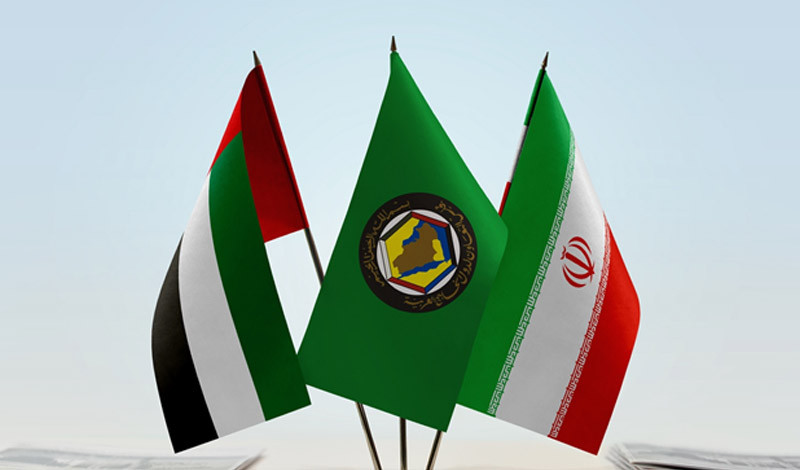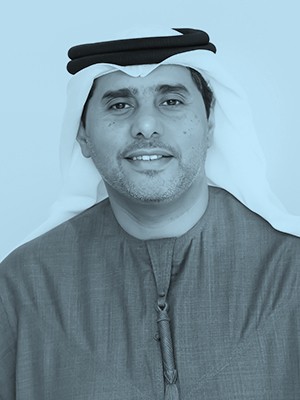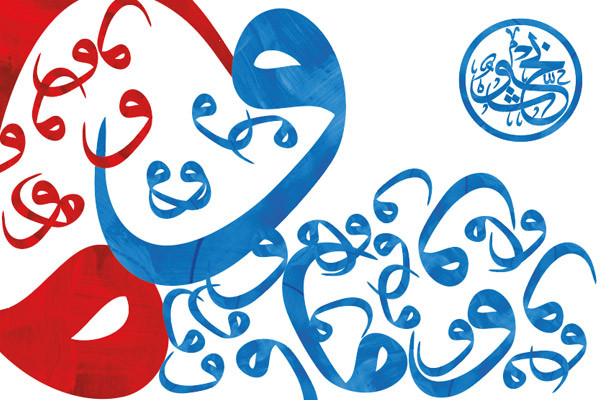Iran and GCC relations: Hope Vs. History
Irans charm offensive has hit the United Arab Emirates, or at least this is how news reports on the UAE presidents acceptance of an invitation to visit Iran have made it sound. But has the UAE actually been gleamed by Irans bright smile?

- by Mohammed Abdul Rahman Baharoon ,
- Sunday, 15th December, 2013
The quick visit of UAE Foreign Minister Sheikh Abdullah Bin Zayed to Iran after the P5+1 signing of the deal was looked down upon by some UAE commentators. In a controversial tweet, Dr. Abdulkhaleq Abdulla described moves by Gulf officials going to Iran as hurdling, a comment that he later withdrawn but many commentators continue to use. He implied that the UAE was trying to move before everyone to regain relations with Iran as a response to what seems to be a Grand Bargain between the US and Iran. But were relations ever lost?
Diplomatic relations never ceased, and visits continue between Emirati and Iranian officials. International Iranian NGOs like the Iranian Red Crescent continue to operate in the UAE, as well as an Iranian hospital, Iranian schools and Shia religious centers with visits from Iranian religious figures. Flights between the UAE and Iranian cities have also never stopped. There was of course the reduction of trade due to UAE commitment to international sanctions, but that didnt hit the UAE alone. So why have the visits by both UAE and Iranian foreign ministers raised eyebrows?
The visit by UAE Foreign Minister Sheikh Abdullah Bin Zayed to Tehran came at a time when GCC policy hallways were covered in a mist of uncertainty due to the sudden announcement of the interim nuclear deal. The US surprised its allies with a quick decision on a deal that wasnt quick at all. The US has been secretly talking with Iran behind its allies backs.
Pragmatic as the US tactic of secrecy may have been, it was not without consequence. The visit of Sheikh Abdullah to Tehran came at a time of wild conclusions by GCC commentators, and officials alike, as to the consequences of such sudden and hastened breakthroughs. Such conclusions were mostly based on inference and speculation, for lack of credible information. The UAE foreign ministers visit was the first real probing of the new Iranian discourse. UAE was trying to get its facts right and get its own direct assessment of the state of play.
Little leaked about the UAEs FM visit to Tehran, however the subsequent visit by Iranian forigne minister Mohammad Jawad Zarif to the UAE and other GCC countries suggests that Arab Gulf states welcomed him based on what the UAE learned in Tehran.
But does that mean Iran has convinced the GCC that it is transformed?
In any practical sense it would be difficult for Iran to perform such a political summersault. Irans charm offensive seems to many observers, and policy makers, a mere bluff to loosen sanctions and even open the door to securing high-tech material and expert services it needs to complete a clandestine nuclear weapons program goods and services that sanctions are now effectively denying.
However, GCC countries, with the UAE at the frontline, seem to prefer to trust in a better future rather than rely on their historical experience with Iran. Their actions imply that if there is hope, hope must be allowed to run its course. If there is a bluff, then a bluff must be called.
The UAE position on Iran at this point seems to be accepting the US discourse that the interim deal is nuclear (period). Nonetheless, the GCC is not nave, nor do they think the US is. President Barack Obamas legacy in the time left of his second term seems to depend on a breakthrough with Iran.
Some commentators in Washington are already making the statement "that an Iran deal can end Americas long war in the Middle East"[1]. Ending US commitment to continue the long war will not end the long war per se, but it will allow the US to avoid being part of it. Despite skepticism in the outcome of such an approach, for the UAE wisdom dictates that a narrow chance that Irans new stance can reduce tension in the region should be seen through.
GCC distrust of Iran is not sheer cynicism; it is a product of a long history that precedes the Iranian Revolution. However, there are those who believe that, though chances are slim, peace should be given a chance. The UAE has given peace with Iran a chance before, with disappointing results.
Giving a peaceful resolution to the issue of the three islands has been a constant strategy of the UAE. This is also true of UAE territorial disputes with Oman and Saudi Arabia, not only with Iran. UAE has taken many paths to resolve the major issue it has with Iran: bilateral talks, offering International Court of Justice interference, which helped states within the GCC like Bahrain and Qatar resolve their territorial disputes, and even accepting arbitration by an ally to Iran such as China.
There could be a credible chance for a better future, but the path is very slippery. No one in the region is keen on living in perpetual tension. The UAE is aware of this. Iran can actually achieve more through peace than it would through geopolitical power mustering.
The US and Iran should recognize that a long-lasting legacy in the region must have the region at its foundation. Economic integration with the region can prove far more helpful to Iran than military power. Iran can achieve far more in a partnership with its neighbors than it would through military coercion. Partnership is not inconceivable, but it will not be without sacrifices.
Iran’s nuclear program is America and Israel’s worry. In the region, that is not the only worry. Iran’s transnational theological discourse is at the heart of the regions instability. Thus, Iran needs to behave as a responsible member of the international community. Its sovereignty will be respected if it behaves as a sovereign state rather than a transnational religious leader and self-appointed protector of Shiite Muslims regardless of their nationality.
The UAE and the other GCC states have taken first steps to give stability in the region a chance, but Iran has to walk the talk for it to work.
Tehran needs to realize that changing future needs changing the history.

Mohammed Abdul Rahman Baharoon
Director General
Read More
Areas of Expertise
- Geo-strategy
- Reputation and soft power
- Public Policy and International Relations
Education
- Master’s degree in English Literature from Texas Tech University in 1995
- English Major from Kuwait University in 1987
Bio
He perused a career in media as a reporter for “Al Arabi” Magazine, Al Ittihad newspaper, and then Editor for Gulf Defense Magazine before starting as director of research at both and focusing on the interplay between Geostrategy and policymaking in governance, stability, capacity building, and future-proofing.
Mohammed has also worked as Deputy Director of Watani (UAE’s first initiative on National Identity) and is also a founding member of the board of “Bussola Institute” a think tank in Brussels that focuses on the changing and emerging aspects of the partnership between the EU and the GCC member states.
As part of his interest in the emerging geostrategic space of the Arabian Peninsula, Mohammed looks at Iran as part of the development of the area as a major trade artery. This development implies developing a sustainable relationship with its regional neighborhood on the Arabian Gulf, The Arabian Sea, the Red Sea, or the Mediterranean. Iran is a major component of that space and becoming more adaptable to the modernization process will allow it to become part of the future development of the region.

